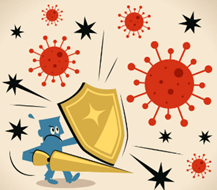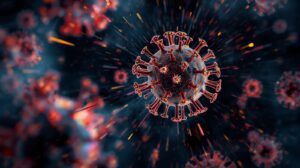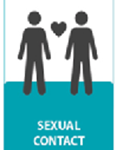Trichomoniasis
What is Trichomoniasis?
A highly contagious sexually transmitted bacterial infection characterized by painless sore on the genitals, rectum or mouth.
Trichomoniasis (trich) is a commonly reported sexually transmitted infection (STI) and is caused by a parasite. It is treatable and curable with the correct antibiotics.
How is it spread?
Trichomoniasis is spread from person to person through anal, oral, and vaginal sexual contact, by sharing unclean sex toys or through genital touching. A Trichomoniasis infection typically occurs in the penis or vagina and is rarely spread to the anus, mouth or the hands. In pregnant women, untreated Trichomoniasis increases risk of premature labor and of having a low birth-weight baby.
Who is at risk for Trichomoniasis?
Anyone who is sexually active or shares unclean sex toys can get Trichomoniasis. Women are more likely to get Trichomoniasis than men. Risk factors for Trichomoniasis include:
- Having a partner who has the disease but has not been treated.
- Being a black female.
- Anyone not using a condom or incorrect usage.
- Anyone with new or multiple partners.
- Anyone with a partner who has other partners.
- Anyone who infrequent tests for infections.
How can I lower my risk of getting trichomoniasis (trich)?
Everyone can lower the risk of infection by practicing safe sex.
- Always use a condom. Condoms used properly reduce but do not eliminate risk.
- Maintain a monogamous relationship with someone who has been tested and does not have an infection.
- Reduce number of partners. Having multiple partners greatly increases risk of infection.
- Talk to your partner and healthcare provider about your sexual activity.
- Get tested regularly.
 What are the symptoms of trichomoniasis (trich)?
What are the symptoms of trichomoniasis (trich)?
Most of the time trich has no symptoms, however symptoms are more common in women. If symptoms do occur, it may be 5 to 28 days after having sex with someone who has the infection. Sometimes symptoms will develop much later. Symptoms also may come and go. This is why regular testing is so important.
Symptoms in people with a penis |
Symptoms in people with a uterus |
| * Frothy discharge from your penis | * Thin or foamy white, yellow or greenish vaginal discharge with a fishy smell |
| * Burning when peeing or after ejaculation | * Pain or discomfort during intercourse or when peeing |
| * Irritation or itching inside your penis | * Irritation, soreness or redness around the opening of your vagina |
 What test is done to diagnose trichomoniasis (trich)?
What test is done to diagnose trichomoniasis (trich)?
Trich is diagnosed through a urine test. The sample is sent to a lab, and results are provided within a few days.
Full STI testing (chlamydia, gonorrhea, herpes, syphilis, trichomoniasis, and HIV) is recommended for all people who are sexually active. Full testing is recommended with every new partner.
 Schedule an appointment at Lexington-Fayette County Health Department’s STI Clinic
Schedule an appointment at Lexington-Fayette County Health Department’s STI Clinic
Lexington-Fayette County Health Department operates a specialty STI Clinic that will test, diagnose and treat those exposed to or with current STIs.
What is the treatment?
Trich is treated with an oral antibiotic that will kill the parasite.


- Metronidazole for 7 days for women, a single dose for men, or
- Tinidazole for 7 days for women, a single dose for men.
Refrain from all sexual activity (including oral sex) until completion of all medicine plus 7 days after because you can still spread the infection. It takes time for the medicine to kill the infection and for symptoms to clear up. Abstain from all sexual activity (including oral sex) until all sexual partners have been treated.
Reinfection
 Trich will not go away on its own. Without treatment, you and your partner will continue to spread the infection back and forth. All sexual partners need to be tested and treated for the infection, even if they have no symptoms.
Trich will not go away on its own. Without treatment, you and your partner will continue to spread the infection back and forth. All sexual partners need to be tested and treated for the infection, even if they have no symptoms.
What happens if I don’t get treatment?
 Trich rarely causes long-term problems, although untreated trich increases your chances of getting other sexually transmitted diseases including HIV. In pregnant women, untreated trich increases risk of premature labor and having a low birth-weight baby.
Trich rarely causes long-term problems, although untreated trich increases your chances of getting other sexually transmitted diseases including HIV. In pregnant women, untreated trich increases risk of premature labor and having a low birth-weight baby.







